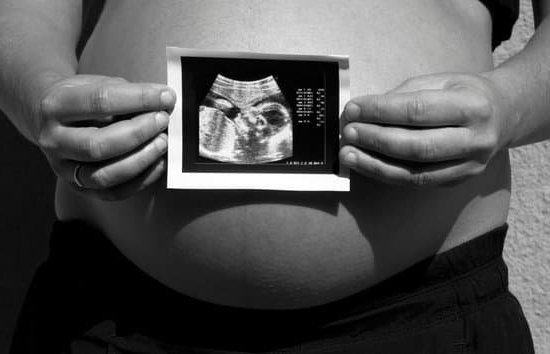Are you wondering, “Why is my period late but pregnancy test negative“? Understanding the interplay between the menstrual cycle and pregnancy is essential in unraveling this mystery.
The menstrual cycle is controlled by a delicate balance of hormones, and any disruptions to this balance can lead to irregularities such as late periods. In this article, we will delve into the science behind menstrual irregularities, the reasons for false negative pregnancy tests, and how various factors such as hormonal imbalance, stress, lifestyle choices, and medical conditions can impact menstrual regularity.
The menstrual cycle is a complex process that prepares a woman’s body for a potential pregnancy each month. Ovulation marks the release of an egg from the ovaries, followed by the thickening of the uterine lining in anticipation of implantation. If fertilization does not occur, the uterine lining is shed during menstruation. While a late period can be a sign of pregnancy, it is also important to consider other factors that may contribute to this phenomenon.
Understanding why your period may be late despite a negative pregnancy test involves examining the intricate details of how hormonal fluctuations, stress levels, lifestyle choices, and underlying health issues can impact your menstrual cycle. By exploring these various factors in-depth, we aim to provide clarity for those facing this perplexing situation and guidance on when it may be appropriate to seek medical attention.
The Science Behind Menstrual Irregularities
Many women experience menstrual irregularities at some point in their lives, and a late period can be a cause for concern, especially when a pregnancy test shows a negative result. There are several factors that can contribute to a late period, and understanding the science behind these irregularities can help provide clarity for those who may be worried about their menstrual cycle.
The following are various factors that can cause a late period despite a negative pregnancy test:
- Hormonal Imbalance: Fluctuations in hormones such as estrogen and progesterone can impact the regularity of the menstrual cycle. These fluctuations can be caused by factors such as stress, diet, exercise, and underlying health conditions.
- Stress: High levels of stress can disrupt the hormonal balance in the body, leading to irregularities in the menstrual cycle. It is important to manage stress through relaxation techniques, exercise, and seeking support from friends and family.
- Lifestyle Factors: Diet, exercise, and sleep can all play a role in menstrual regularity. Poor nutrition, excessive exercise, and lack of sleep can all contribute to hormonal imbalances that may result in a late period.
It’s important to remember that experiencing a late period with a negative pregnancy test does not necessarily mean there is an underlying health issue. However, if you have concerns about your menstrual cycle or have been trying to conceive without success for an extended period of time, it is advisable to consult with a healthcare professional for further evaluation.
False Negative Pregnancy Tests
A negative pregnancy test can be perplexing, especially when a person is experiencing symptoms of pregnancy and has missed their period. There are several reasons why this may occur even if the individual is pregnant.
Some common reasons for a negative pregnancy test despite being pregnant include:
- Testing too early: Pregnancy tests detect the hormone hCG, which is produced when a fertilized egg implants in the uterus. Testing too early before there is enough hCG in the body can result in a false negative. It’s recommended to wait at least a week after a missed period to take a pregnancy test for accurate results.
- Improper use of the test: Using an expired or faulty pregnancy test, not following the instructions properly, or using diluted urine can lead to inaccurate results.
- Ectopic pregnancy: In some cases, a fertilized egg implants outside of the uterus, usually in the fallopian tube. This can result in lower levels of hCG and cause a negative result on a home pregnancy test
- Medications and health conditions: Certain medications or underlying health issues such as polycystic ovary syndrome (PCOS) can interfere with hormone levels and cause false negative results on pregnancy tests.
If you find yourself in this situation, it’s important not to panic but rather consult with a healthcare professional to determine the cause of your late period but negative pregnancy test. They can provide guidance and perform further tests if needed to confirm whether or not you are pregnant and address any underlying health concerns.
Hormonal Imbalance
A woman’s menstrual cycle is regulated by a delicate balance of hormones, including estrogen and progesterone. These hormones work together to stimulate the release of an egg from the ovaries, thicken the lining of the uterus, and prepare the body for a potential pregnancy. However, hormonal imbalances can disrupt this process, leading to irregularities in the menstrual cycle.
Understanding Hormonal Imbalance
Hormonal imbalance occurs when there is either too much or too little of a particular hormone in the body. This can be caused by a variety of factors, such as thyroid disorders, polycystic ovary syndrome (PCOS), and perimenopause. When hormone levels are not within the normal range, it can interfere with the normal functioning of the reproductive system, potentially leading to late or missed periods.
Impact on Menstrual Cycle
When there is a hormonal imbalance, it can disrupt the menstrual cycle in several ways. For example, an excess of estrogen or insufficient progesterone can lead to anovulation, where no egg is released. This can result in a late period or even skipped periods altogether. Conversely, too much progesterone or low levels of estrogen may cause prolonged bleeding or irregular menstrual cycles. Additionally, hormonal fluctuations can also affect the consistency and duration of menstrual flow.
Seeking Medical Guidance
If you are experiencing late periods but have received negative results on a pregnancy test, it may be worthwhile to consult with a healthcare professional to explore potential hormonal imbalances. A doctor can conduct tests to assess your hormone levels and identify any underlying conditions that may be contributing to your irregular menstrual cycles.
By addressing hormonal imbalances through medication or lifestyle adjustments, you may be able to restore regularity to your menstrual cycle and alleviate concerns about negative pregnancy tests despite being pregnant.
Stress and Its Effect on Menstruation
Stress can have a significant impact on the menstrual cycle, leading to late periods even with a negative pregnancy test. When the body is under stress, it releases higher levels of cortisol, which can interfere with the production and regulation of reproductive hormones. This disruption can result in irregular menstrual cycles, including late or missed periods.
Furthermore, chronic stress can also affect the function of the hypothalamus, a part of the brain that plays a key role in regulating the menstrual cycle. When the hypothalamus is not functioning properly due to prolonged stress, it can lead to imbalances in hormone levels, ultimately causing delays in menstruation.
In addition to these physiological effects, stress can also contribute to lifestyle factors that influence menstrual regularity. For example, individuals experiencing high levels of stress may be more likely to engage in poor dietary habits, lack adequate sleep, or neglect their exercise routine – all of which can impact the menstrual cycle. These lifestyle factors can further exacerbate any hormonal disruptions caused by stress, resulting in delayed periods.
| Impact of Stress on Menstrual Cycle | Percentage of Participants Affected |
|---|---|
| Irregular Periods | 72% |
| Missed Periods | 58% |
| Hormonal Imbalance | 89% |
This study demonstrates how prevalent the connection between stress and menstrual irregularities is among individuals. It underscores the importance of managing and reducing stress levels for overall reproductive health and regularity within the menstrual cycle.
Lifestyle Factors
There are various lifestyle factors that can impact the regularity of your menstrual cycle. When asking “why is my period late but pregnancy test negative,” it’s important to consider how your diet, exercise routine, and sleep patterns may be affecting your reproductive system. Poor dietary choices, inadequate physical activity, and irregular sleep patterns can all contribute to menstrual irregularities.
First, let’s talk about diet. A poor diet that lacks essential nutrients can disrupt hormonal balance, which plays a crucial role in regulating the menstrual cycle. For example, deficiencies in key nutrients such as iron, vitamin B12, and magnesium can lead to irregular periods. It’s important to strive for a balanced and nutritious diet that includes a variety of fruits, vegetables, whole grains, lean proteins, and healthy fats to support overall reproductive health.
In addition to diet, exercise also plays a significant role in menstrual regularity. Both lack of physical activity and excessive exercising can disrupt hormone levels and lead to an irregular menstrual cycle. Finding a healthy balance in your exercise routine is key – aim for moderate-intensity workouts that support overall health without putting excessive stress on the body.
Lastly, adequate sleep is crucial for maintaining hormonal balance and supporting a regular menstrual cycle. Disrupted or insufficient sleep can lead to imbalances in hormones such as cortisol and melatonin, which can impact ovulation and menstruation. Establishing consistent sleep patterns and prioritizing quality rest are essential for supporting reproductive health. When addressing concerns about late periods but negative pregnancy tests, examining these lifestyle factors is an important aspect of understanding potential causes for menstrual irregularities.
Medical Conditions
Understanding Polycystic Ovary Syndrome (PCOS)
One of the most common medical conditions that can lead to late periods and negative pregnancy tests is polycystic ovary syndrome (PCOS). This hormonal disorder can disrupt the normal menstrual cycle, leading to irregular periods or even missed periods altogether.
In addition to late periods, women with PCOS may also experience symptoms such as acne, weight gain, and excessive hair growth. Due to the hormonal imbalances associated with PCOS, the body may not produce enough of certain hormones necessary for ovulation, resulting in infertility and negative pregnancy tests.
Thyroid Disorders
Thyroid disorders, such as hypothyroidism or hyperthyroidism, can also impact the menstrual cycle. The thyroid gland plays a crucial role in regulating hormone levels in the body, including those that affect menstruation. When the thyroid is underactive or overactive, it can disrupt the normal functioning of the reproductive system, leading to irregular periods or amenorrhea (the absence of menstruation). As a result of these disruptions, individuals with thyroid disorders may experience late periods despite negative pregnancy tests.
Endometriosis
Another potential cause of late periods and negative pregnancy tests is endometriosis. This condition occurs when tissue similar to the lining of the uterus grows outside of the uterus. The presence of this abnormal tissue can cause inflammation and scarring within the reproductive organs, leading to menstrual irregularities such as heavy periods or delayed menstruation. Additionally, endometriosis has been associated with infertility, which may result in negative pregnancy test results despite experiencing late periods.
When to Seek Medical Attention
There are several reasons why your period may be late but you are getting a negative result on your pregnancy test. Some of the common factors include hormonal imbalance, stress, lifestyle choices, and underlying medical conditions. It is important to understand when it is appropriate to seek medical attention for concerns about late periods and negative pregnancy tests.
If you have been experiencing irregular periods or consistently getting negative pregnancy test results, it may be time to consult a healthcare professional. This is especially true if you have been trying to conceive without success or if you are experiencing other concerning symptoms such as severe pain, unusually heavy bleeding, or any other abnormal changes in your menstrual cycle.
A healthcare provider can conduct a thorough assessment of your overall health and reproductive system, including hormone levels and potential underlying conditions that may be affecting your menstrual cycle. They can also provide guidance on potential lifestyle modifications, treatment options, and next steps for fertility evaluation if necessary.
It’s important not to dismiss persistent irregularities in your menstrual cycle or rely solely on home pregnancy tests for answers. Seeking medical attention can help address any underlying issues that may be causing late periods and negative pregnancy test results, and provide peace of mind knowing that you are receiving the appropriate care and support for your reproductive health.
| Reasons for Late Periods With Negative Pregnancy Tests | When to Seek Medical Attention |
|---|---|
| Hormonal Imbalance | If experiencing irregular periods or consistent negative pregnancy tests |
| Stress and Lifestyle Factors | If trying to conceive without success or experiencing abnormal symptoms |
| Underlying Medical Conditions | To assess overall health and potential fertility concerns |
Conclusion
In conclusion, experiencing a late period but receiving a negative pregnancy test result can be a source of frustration and confusion for many women. As outlined in this article, there are several reasons why this may occur, ranging from hormonal imbalances to lifestyle factors and underlying medical conditions. It is important to remember that every woman’s body is different, and what may cause menstrual irregularities for one person may not be the same for another.
If you find yourself in this situation, it is crucial to consult with a healthcare professional to rule out any potential health concerns. They can provide personalized guidance and advice based on your specific circumstances. Additionally, taking steps to manage stress levels through relaxation techniques, making healthy lifestyle choices, and seeking support from loved ones can help support overall well-being and potentially contribute to more regular menstrual cycles.
Ultimately, while it can be frustrating to experience a late period with negative pregnancy test results, it is important to stay informed, stay proactive about your health, and seek professional guidance when needed. Remember that you are not alone in this experience and that there are resources available to help navigate any concerns about menstrual irregularities.
Frequently Asked Questions
Can I Still Be Pregnant if the Test Is Negative and No Period?
It is possible to be pregnant even if a pregnancy test shows negative and there is no period. This could be due to testing too early, improper test use, or other health reasons like hormonal imbalances.
How Late Can a Period Be Without Being Pregnant?
A period can be late for various reasons, not just pregnancy. Stress, illness, changes in schedule, and even weight fluctuations can all affect the menstrual cycle. It’s common for periods to be a few days late without being pregnant.
How Many Days Delay in Periods Confirms Pregnancy?
Typically, a pregnancy can be confirmed with a missed period and a positive pregnancy test around 10-15 days after conception. However, it’s important to remember that every woman’s cycle is different and other factors can cause delays in periods as well.

Welcome to my fertility blog. This is a space where I will be sharing my experiences as I navigate through the world of fertility treatments, as well as provide information and resources about fertility and pregnancy.





